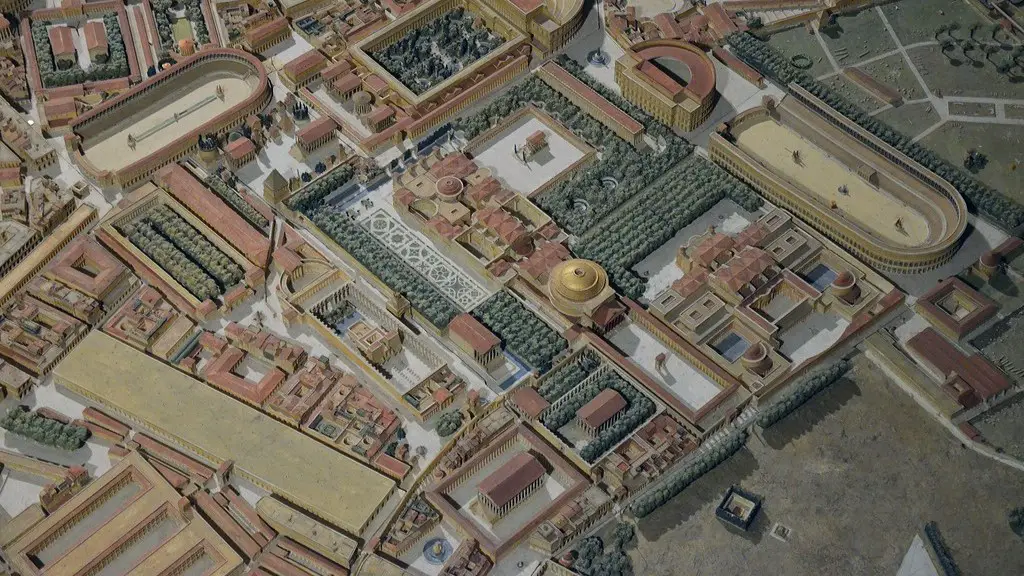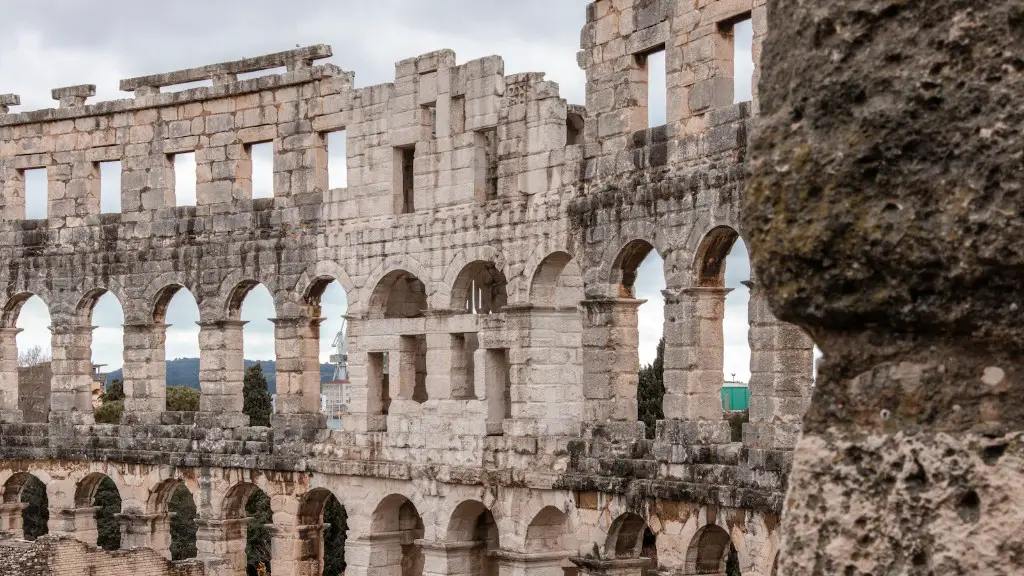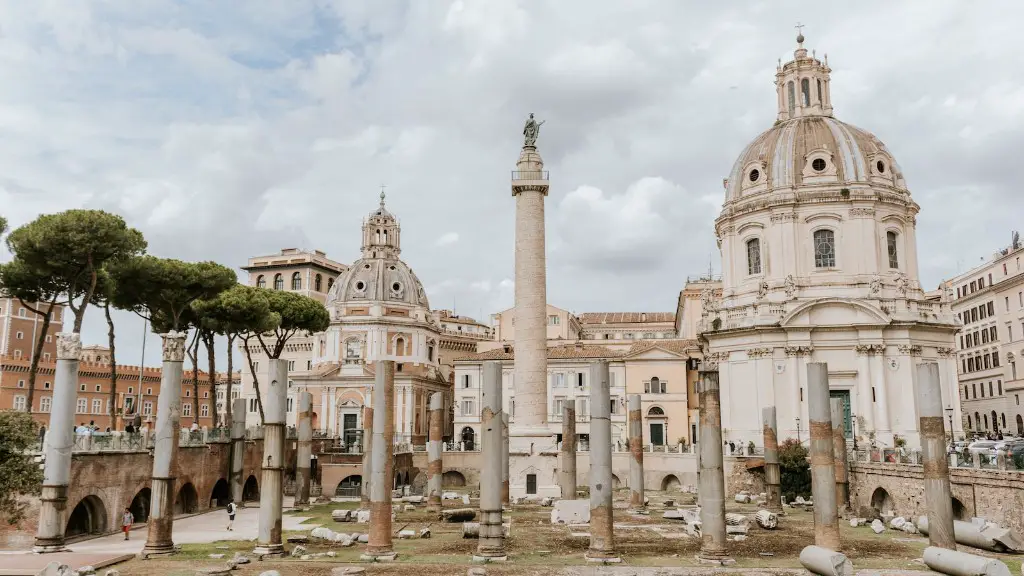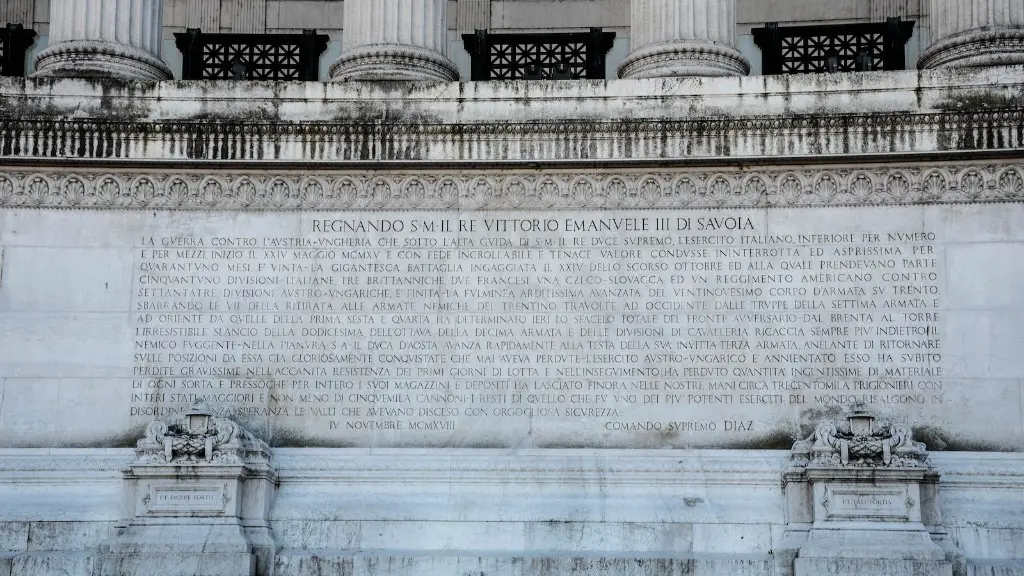The debate of who was the best emperor of ancient Rome is one of the oldest discussions in world history. Ancient Rome was one of the most powerful empires in the world and the emperors who ruled it left a profound impact on its culture and its power. In terms of deciding the best emperor, historians typically look for three key criteria: their leadership skills, their military accomplishments, and their lasting legacy.
In terms of leadership, historians tend to recognize Augustus Caesar as the best emperor. He was the first emperor of Rome, and he is credited with ushering in the Pax Romana, a period of peace and prosperity for the Roman empire. He was able to accomplish this by reducing corruption and centralizing Rome’s government. Augustus was a shrewd leader who was able to establish stability through his charisma and intelligence.
In terms of military accomplishments, some historians recognize Constantine the Great as the best emperor. He overthrew his predecessor and became the sole ruler of the Roman Empire. He issued sweeping reforms that strengthened the military and helped protect the borders of the Roman Empire. He also oversaw the rise of Christianity throughout the empire, making it the official religion of Rome. This was a crucial move that helped Christianity spread throughout Europe and beyond.
With regards to legacy, there is little debate that Trajan was the best emperor. He is remembered as one of the most prosperous and enlightened rulers of the Roman empire. He greatly expanded the empire and is known for his construction projects and social reforms. He also waged successful campaigns that strengthened the borders of Rome and defeated formidable enemies such as the Dacians. Trajan was seen by many as the ideal ruler, an example of a strong and just leader that inspired future generations.
In attempting to determine the best emperor, there are myriad factors that cannot be overlooked. Some historians point to Marcus Aurelius, who was known for his stoic philosophy and wise leadership. Others point to Nero, a polarizing figure who did much to expand the Roman Empire and strengthen its economy. In the end, it is ultimately up to the individual to decide who was the best emperor.
Leadership
Augustus Caesar is widely hailed as the best emperor of ancient Rome in terms of his leadership skills. He was able to bring about the Pax Romana, a period of stability and prosperity for the Roman empire. He was an incredibly shrewd ruler who was able to gain the support of the people by being a visionary leader. He instituted reforms aimed at reducing corruption and centralizing the government, which helped usher in a more peaceful era.
Another key leader was Trajan, who is remembered as one of the most enlightened rulers of the Roman empire. He was an innovator in many respects, introducing new construction projects and social reforms that made life better for the people. Trajan was also a skilled military leader, defeating formidable enemies such as the Dacians and strengthening the borders of Rome.
Marcus Aurelius is another emperor revered for his sound leadership capabilities. He was a popular figure among the people, renowned for his noble character and wise decisions. He had a powerful influence on Roman culture, particularly his stoic philosophies, which had a lasting impact on future generations.
Military Accomplishments
Constantine the Great was a military prodigy who was able to successfully overthrow his predecessor and become the sole ruler of the Roman Empire. He instituted sweeping reforms that strengthened the military and helped protect the borders of Rome. He also successfully launched campaigns against formidable enemies such as the Persians and the Goths, proving himself to be a formidable warrior.
Another impressive leader was Trajan, who is remembered for his successful military campaigns against the Dacians and his efforts to strengthen the borders of Rome. He was an able commander in battle, something that was praised by his contemporaries. He is also remembered for his successful negotiations with Parthia, a key Roman ally.
Finally, Augustus Caesar was a master tactician and strategist, who was able to bring a measure of peace to the Roman empire. He was a shrewd ruler who was adept at making powerful enemies allies and managing complex situations. He was also praised for his reforms that drastically improved the lives of ordinary Romans.
Legacy
Trajan is widely regarded as the best emperor of ancient Rome in terms of legacy. He is remembered as one of the most wise and enlightened rulers in Rome’s history. Not only did he expand the empire and defeat formidable enemies, but he was also an innovator who was known for his construction projects and social reforms. He sought to improve the lives of his subjects and is remembered for his dedication to justice and fairness.
Another important leader was Augustus Caesar, who is credited with ushering in the Pax Romana, a period of peace and prosperity for the Roman empire. His reforms helped bring an end to civil wars and political unrest, and he is remembered as a shrewd leader who was able to reduce corruption and centralize the government. He is also remembered for his dedication to justice and fairness.
Finally, Constantine the Great is remembered for his sweeping reforms and the rise of Christianity throughout the empire. He is credited with issuing the Edict of Milan which granted freedom of religion to people of all faiths. He is also remembered as a cunning military leader who was able to successfully overthrow his predecessor and gain control of the Roman Empire.
Influence
The emperors of ancient Rome had a great impact on the culture and history of the world. Each emperor left a lasting legacy that has had an indelible effect on history. Augustus Caesar is remembered for ushering in the Pax Romana, a period of peace and stability for the Roman empire. He is lauded for his reforms that reduced corruption and unified the country. He is also seen as a shrewd leader who was able to move the Romans towards greater prosperity.
Another influential figure was Constantine the Great. He is remembered for his successful campaigns to expand the borders of the Roman Empire, as well as for his efforts to make Christianity the official religion of Rome. This was an important shift in the cultural and religious landscape of the region, and it resulted in Christianity becoming a major religion throughout Europe and beyond.
Finally, Trajan is remembered as one of the most enlightened and successful rulers in the history of Rome. He expanded the empire and is remembered for his construction projects and social reforms. He is also known for his commitment to justice and fairness, which inspired future generations of leaders. His legacy is still celebrated to this day.
Philosophy
The emperors of ancient Rome had a profound influence on the philosophical landscape of their time. Augustus Caesar is remembered as a shrewd ruler who was able to reduce corruption and centralize the government. He is also remembered for his dedication to justice and fairness. His rule helped usher in an era of peace and prosperity, which at the time was seen as the ideal way of governing a people.
Marcus Aurelius is described by some as the last great ruler of the Roman Empire. He was an influential figure who is remembered for his stoic philosophy. His philosophies had a lasting impact on Western culture, and many of his teachings are still studied to this day. He is remembered as a wise and noble leader, who sought to bring about a better world for his subjects.
Constantine the Great is remembered for his commitment to expanding the boundaries of the Roman Empire. He is also remembered for his reforms, which focused on centralizing the government and making Christianity the official religion of the empire. His rule marked an important shift in the religious and cultural landscape of the region.
Religion
Augustus Caesar is widely regarded as one of the greatest emperors of ancient Rome in terms of legacy. He is remembered for his reforms that aimed to reduce corruption and create a unified government. He also oversaw the rise of Christianity throughout the empire, making it the official religion of Rome. This was a crucial move that helped to spread Christianity throughout Europe and beyond.
Constantine the Great is another influential figure who is remembered for his efforts to expand the borders of the Roman Empire, as well as for making Christianity the official religion of Rome. This was an important shift in the religious and cultural landscape of the region, and it resulted in Christianity becoming the dominant religion of Europe and beyond. His role in Christianizing the Roman Empire cannot be overlooked.
Trajan is also remembered for his commitment to justice and fairness for his subjects. In particular, he is widely praised for his decision to legalize Christianity, a crucial move that helped to spread the religion throughout the empire. His religious reforms and his willingness to protect Christians from persecution was seen as a sign of religious tolerance, something that would not become commonplace for centuries.





